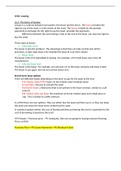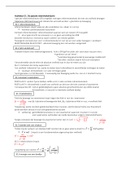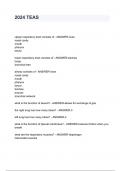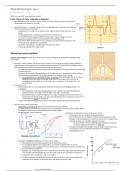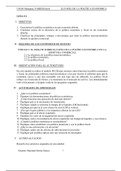Lecture 1
1. What are the four drivers of the trend towards digitalization in financial services?
Technology has changed
o More communication on digital device
o More data stored, saved and processed
o More decisions data-driven and automated
Customers have changed
o More demand in terms of user experience
o Require personalization
o Require low costs
o Embrace digitalization (trust in IT firms, interact with robots and digital devices,..)
Banks’ profitability under pressure
o Exposed banks vulnerabilities
o Low margins due to overcapacity: cannot cover costs in LT
o Solutions: M&A
o Be efficient
o Meet customer’s needs
Competition has increased
o New entrants specialized in one service
2. What are the hurdles in the transformation from a traditional physical bank to phygital or digital bank?
Cost of transformation
o Balance with gains from automation and digitalization
People: war for talent
Technology: fast evolving
o Stay up to date is challenge
Vision: proactivity and persistence, as it takes time
o Different C-functions: chief digital officer, information officer,..
3. Explain following concepts
Phygital approach
o Different branches in one network e.g. Belfius mobile banking + interaction platform
for customer services
Data driven
o To be informed by advanced data analytics
Digital first
o Basis: digital interactions with customers e.g. solutions for customers’ financial needs
via mobile applications
Robo-advice
o Robot provides relevant and personalized solutions
AI learning
o Robot/chat bots continuously improve
Personalization
o Personal advice
Augmented workforce
o A blend of human employees and technology workers on tasks together e.g. routine
tasks by robots, other jobs are created to monitor, install and maintain these robots
,Questions 1-3 could be integrated into a new question that integrates related concepts from Lecture 10
4. Explain how the business problem of an insurer can be mapped into a data problem
Business problem
o Attract people to pay premiums
o Premiums sufficient to cover claims, costs and have profit
Data problem
o Which data is useful to determine premium
o Avoid fraud
Data solution
o Collect data on client characteristics and past claims
o Determine model
Business solution
o Digital or phygital platform to attract clients
o Let them fill in questionnaires to calculate premium
Might be linked with a question from Lecture 8
5. What is FSAN?
Analytics: analysis of data with goal
o Improve decisions
o Growing business
o Optimizing cost
o Managing risk
Financial services
o Banking
o Insurance
o Payments services
o Wealth & asset management
, Lecture 2
1. What is the server log?
Tracks user’s clickstream data
Very detailed
Challenges
o High volume of data
o Raw, unfiltered descriptions
o Doesn’t tell why customer visited
Transform clickstream in time series
o Time > threshold contact the user with an offer
o Find threshold with grid search
2. What is the grid search approach to optimizing a function?
Force approach to find best value
o Define lower and upper bound
o Evaluate function for a sequence between lower and upper
o Set the solution to the trial value with highest value for objective function
3. What is a 10 month moving average stock price series and how can it be used in market timing?
Trading to rule: stay invested as long as the current P exceeds 10-month moving average
4. What is a rolling window approach and how can it be used to monitor risk?
Compute annualized volatility for every window of 21 days
High volatility means high risk
5. What is optimization?
Make decision that achieve best value (=global max) with respecting constraints
x for max f(x) will also be x for min -f(x)
Value first derivative = x
Value second derivative > 0 convex (min), if < 0 concave (max)



